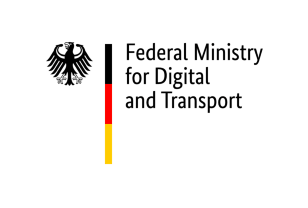Gold partner
Being “The Research University in the Helmholtz Association”, KIT creates and imparts knowledge for the society and the environment. It is the objective to make significant contributions to the global challenges in the fields of energy, mobility, and information. For this, about 9,800 employees cooperate in a broad range of disciplines in natural sciences, engineering sciences, economics, and the humanities and social sciences. KIT prepares its 22,300 students for responsible tasks in society, industry, and science by offering research-based study programs. Innovation efforts at KIT build a bridge between important scientific findings and their application for the benefit of society, economic prosperity, and the preservation of our natural basis of life. KIT is one of the German universities of excellence
Our Projects
InnoFuels: Networking, further development and framework conditions for the ramp-up of electricity-based fuels and advanced biofuels
In accordance with the Directive on the Promotion of Measures for the Development of Renewable Fuels of 11.05.2021[1]
Coordinator:
Karlsruhe Institute of Technology, Dr.-Ing. Olaf Toedter
Brief description:
Synthetic fuels (reFuels) based on renewable energy sources offer a contribution to achieving the new, significantly more ambitious climate protection targets of the European Union, thus avoiding compensation payments under the "Effort Sharing Decision" and ensuring the resilience of mobility even in the event of disasters. There will also be applications in the future that cannot do without liquid hydrocarbon-based fuels: aviation, shipping and also some ground transportation. In order to achieve national and international climate protection targets, they must not only be climate-neutral in their application, but also be produced with a minimal CO2 footprint. The InnoFuels platform is intended to make a significant contribution to the networking of activities, the further development of technologies and the presentation of the framework conditions and thus contribute to an accelerated ramp-up of electricity-based fuels and advanced biofuels.
These topics are currently being addressed in a large number of research and development projects, each with specific aspects of the production, application and evaluation of these fuels. However, comprehensive networking and an intensive exchange at federal and EU level has not yet taken place and is therefore delaying their further development, implementation and ramp-up. The InnoFuels platform aims to fill this gap and bring together the relevant activities in a network of industry, application and research. The existing information is to be bundled, prepared in guidelines and target group-oriented recommendations and used in events such as innovation workshops to promote innovation. InnoFuels aims to bring together approaches and proposed solutions, some of which are highly "regional" or isolated, and thus create a platform within which knowledge and experience can be exchanged and overall solutions can be devised. In addition to the technical and socio-economic aspects, private sector and regulatory aspects are also the subject of exchange and networking, as relevant business cases can only be identified and evaluated through the interaction of all these aspects. In addition, the recommendations for action resulting from the aforementioned activities and the respective underlying analyses are prepared for specific target groups. However, the focus on regulatory aspects, for which the BMUV is responsible within the Federal Government, is exclusively descriptive.
InnoFuels does justice to the highly interdisciplinary nature of this task through cooperative work in seven subject-specific innovation focus areas, which work together in teams with experts from science, industry and politics to develop solutions for the focus areas and bring them together. In InnoFuels, methods and exchange platforms are developed and established in such a way that they are available to the research and development community, industry and politics during the course of the project.

Renewable fuels from green refineries of the future (REF4FU)
Project objective
The project aims to develop, validate and evaluate sustainable refinery concepts that can be used to produce the future demand for renewable liquid fuels. Renewable methanol, Fischer-Tropsch hydrocarbons and pyrolysis oils are to be used to produce, test and evaluate the fuels that are common in today's fleets and will be required in the foreseeable future using scalable technologies. In addition, they will be classified against the background of the regulatory framework.

























